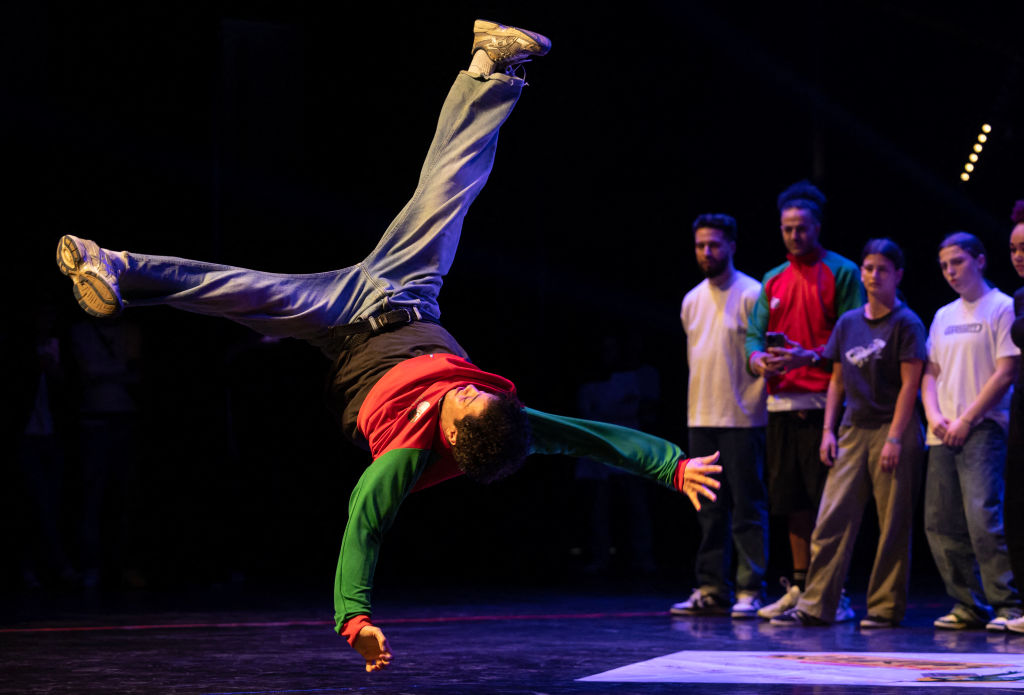April 18, 2024
The International Olympic Committee has been actively courting younger viewers and it believes that the additions of breaking, surfing, skateboarding, and sport climbing will help them achieve that goal.
Breakdancing, or Breaking as the Olympics defines it, debuted in an Olympic international competition during the 2018 Summer Youth Games in Buenos Aires. It was so well received that in 2020, it was added to the Olympic program for the 2024 Paris Olympics.
As the Houston Chronicle reports, the Olympics will use a comparative judging system that takes into account six criteria: creativity, personality, technique, variety, performativity, and musicality. Breakers will battle one-on-one in a round-robin style competition. Battle rounds will last for 35-45 seconds and can be deducted points for unoriginality or unsportsmanlike conduct. The five judges can also change their scores throughout the round, and the contestant with the most points in a round wins.
As NBC News reports, the International Olympic Committee has been actively courting younger viewers and it believes that the additions of breaking, surfing, skateboarding, and sport climbing will help them achieve that goal. The Paris Olympics notes that “all four are easy to take up, and participants form communities that are very active on social media.”
I keep forgetting breakdancing is a sport at this Olympics 😭 pic.twitter.com/CmbPC8aW6P
Introducing the Nike Jam, a sneaker designed specifically for the first year that breakdancing is an official Olympic event. Designed in partnership with the Nike Sports Research Lab and elite breakdancers, its blends innovation around both the wearer's foot and underfoot.
For… pic.twitter.com/QXZ6Jf3to5
The breakers themselves know this represents a tremendous opportunity and also a challenge for the sport, as Jeffery Louis, also known as B-Boy Jeffro, told the outlet. “This is a chance for us to grow and educate people on breaking. If we get it right, we can create something unstoppable,” Louis said. “We can’t let it pass us up again, because the first time breaking blew up, it fizzled out.” Louis, the fifth-ranked breaker in the world, is a favorite to take one of the men’s team’s final available slots.
Louis, a Houston native, credited the origins of the sport and art form, telling NBC News, “A legendary DJ named Kool Herc debuted a new technique that centered around percussive ‘breaks’ in songs. During these breaks, the crowd would start dancing, which became known as breaking or breakdancing.”
Breaking maintained its popularity into the 1980s and received a boost through the 1983 film Flashdance, which featured the popular group The Rock Steady Crew. However, by the end of that decade, the popularity it enjoyed had died down. In the 1990s, International Battle of the Year, the first international and formally-judged breaking competition, helped to revitalize the sport. Since then, according to USA Dance, “breaking has evolved into a global cultural art form with many elements of sport.”
Sunny Choi, one of the American B-girls, underscored the origins of breaking and that she considers it both a sport and an art form. In March, Choi, who has sponsorship deals with Nike and Samsung, said, “There’s no doubt in my mind this is a sport. Dance, art, sport, all together. These things aren’t mutually exclusive. It’s one of those things, like politics. When somebody is so far in one direction, you can’t help them see the other. I don’t feel like it’s my place to change everybody’s mind.”
Choi continued, “Breaking comes from Black and brown communities in the Bronx, and when it goes to the Olympics, we know these aren’t the ones who are going to get all the money. I think it’s our responsibility, as the first breakers who go, to be mindful of this.”
Imani Kai Johnson, an associate dance professor at the University of California Riverside, disagrees with Choi’s point. Johnson told Time that she cannot endorse divorcing breaking from its cultural connection. “I’m not particularly excited about breaking in the Olympics. My investment is in hip-hop as a culture with Africanist aesthetic foundations and not as a sport that is increasingly detached from any cultural context.”
Others, like DJ Renegade, who was brought in by the World DanceSport Federation to help devise a proper judging system, see a problem with the lack of elevation of either the sport or culture, telling Time, “The WDSF has dropped the ball here. They’ve done nothing, man. No promotion. Breaking is in the f-cking Olympics, man. Are you insane? This should be plastered everywhere.”
WDSF President Shawn Tay responded, telling the outlet, “Such statements are not terribly productive, but with any project of this size and stature, you can expect a certain amount of criticism, warranted or not.” Tay said, “We have worked tirelessly over the years together with Paris 2024 and the IOC to prepare for the Olympic Games.”
Regardless of the infighting and disagreements, USA Dance expects Choi and the rest of the American team to not only set the standard but also bring home the gold in Olympic Breaking.
Tyquan Hodac, USA Dance’s breaking communications director, told NBC News, “Now, the USA is a front-runner at the Olympics. We’re the powerhouse. Every other country is looking up to us.”
Enter your Email Address below to get our fun-filled Newsletter!
© 2024 Black Enterprise. All Rights Reserved.

